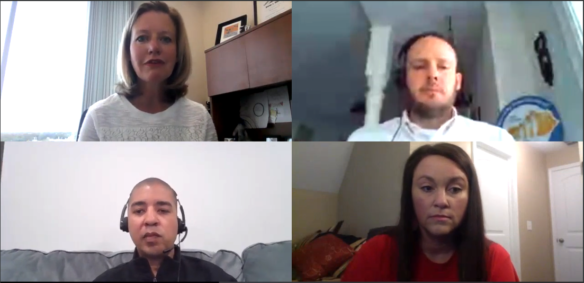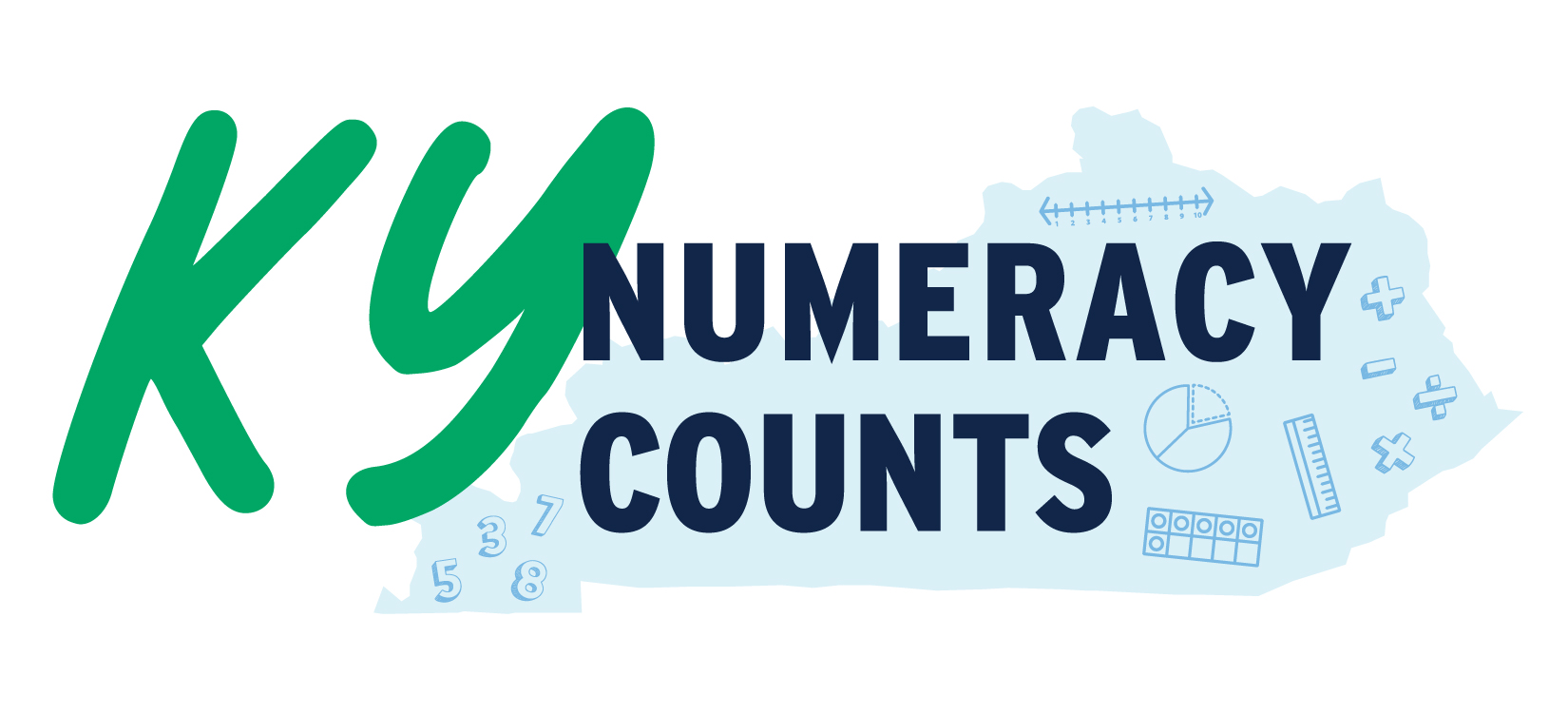
- Amanda Ellis prepared a survey for the council members that asked their opinion on the importance of graduation and how they think graduation ceremonies should be handled for the 2020 senior class.
- David Cook, who coordinates KDE’s NTI Program, spoke with the Student Advisory Council about their experiences so far with the program.
By Jacob Perkins
Jacob.perkins@education.ky.gov
Members of the Kentucky Department of Education’s (KDE) Commissioner’s Student Advisory Council said at their April 14 virtual meeting that having a graduation ceremony is very important to them, with the majority saying they would be willing to wait for an in-person ceremony.
Amanda Ellis, associate commissioner from KDE’s Office of Teaching and Learning, prepared a survey for the council members that asked their opinion on the importance of graduation and how they think graduation ceremonies should be handled for the Class of 2020. Graduation ceremonies have been called into doubt due to schools being closed to in-person classes since March 16.
The survey asked the students to rank the importance of having a graduation ceremony on a scale of 1-5 – with 5 being the most important. Of the 13 council members, the average answer was 4.23, meaning the students felt that having a ceremony is important.
As for what a potential ceremony could look like, nine of the 13 respondents said that a delayed graduation would be their choice. Other options receiving votes were a virtual graduation (three votes) and a drive-through ceremony (one vote).
The responses from this survey will be shared during the April 20 Education Continuation Task Force meeting and will be discussed with superintendents during KDE’s Special Superintendents’ Webcast series.
“We don’t make a decision as to what type of graduation ceremony you may have,” Interim Commissioner Kevin C. Brown explained to the students. “But we are here to be a sounding board and to help districts explore other ideas, since we are in new territory.
“We want to make sure that we’re honoring these important milestones and we may have to do these in a non-traditional way. That’s why we’re having the conversation.”
Another question on the survey asked students to list topics they feel are being overlooked while districts are focused on non-traditional instruction (NTI). A couple of students mentioned that they felt that student transition needs to be focused on more intently, including high school seniors heading to college and next school year’s incoming freshmen.
David Cook, who coordinates KDE’s NTI Program, spoke with the Student Advisory Council about their experiences so far with the program.
All 172 Kentucky school districts, 53 area technology centers, Kentucky School for the Blind and Kentucky School for the Deaf ceased in-person classes and began instituting NTI in response to a March 16 recommendation made by Gov. Andy Beshear.
According to Cook, 2,569 days of instruction have been saved through NTI since March 16.
“That’s how we look at it,” said Cook. “Rather than having nothing going on, we have this opportunity to have something going on. Moving forward, every week, we will have an additional 860 days of instruction saved.”
C.J. Johnson, a senior from Marshall County High School, said that the biggest advantage for him with NTI has been getting into a routine with his schoolwork.
“I think that’s been a big part of keeping myself sane,” he said. “Just being able to get into a routine and being able to get my schoolwork done at a certain time. My teachers are doing a good job of getting it posted early so I can get into it and get through it.”
Solyana Mesfin, a sophomore at Eastern High School (Jefferson County), said that Jefferson County is still in the learning process of NTI since it is only their second week in the program.
“All of the teachers and all of the students are just trying to navigate and see how it is,” she said. “Everybody is learning as we go.”
Cook reassured the students that it’s not just their district that is in the learning process with this level of NTI – a program that was not designed to replace this many school days. According to statute, districts were able to use 10 days of NTI. However, when Beshear signed SB 177 into law on March 24, districts became allowed to use as many NTI days as necessary during the COVID-19 crisis.
“As I’ve said before this week to other groups, we’re only a month in,” he said. “NTI is better today than it was March 16 and it’s not as good as it will be on May 1.”

Members of the Commissioner’s Student Advisory Council held their second virtual meeting April 14. The majority of the members of the council said they would be willing to wait to hold an in-person graduation ceremony once the threat of COVID-19 has passed.
Screenshot courtesy of the Kentucky Department of Education
The mental health of Kentucky’s students is of the utmost importance – especially during this time of additional stresses. Damien Sweeney, program coordinator for comprehensive school counseling in the Office of Teaching and Learning, began his presentation to the council by performing a mental health check-in with each of its members.
Some of the students said that school closures have caused some stress, but their districts are doing what they can to make students feel appreciated.
Lauren Witt, a senior from Glasgow High School (Glasgow Independent), said her principal has been posting students’ senior pictures on Instagram along with their future plans and their favorite memory of their time at the school.
“I think that’s a good way to honor students by showing their picture,” she said. “It makes the students feel good and appreciated during this time.”
Sweeney said that he’s seen the word “depression” thrown around quite a bit online during this period of school closure, so he wanted to take some time during his presentation to explain the difference between sadness and depression.
“Sad is normal. We all feel sad sometimes,” he said. “The difference is that sad is inconsistent. … Depression is consistent and constant.”
According to Sweeney, some things to look for during depression are:
- Physical complaints
- Social withdrawal
- Academic decline
- Substance abuse
- Self-criticism
- Aggression or irritability
“If you have friends that are showing signs of this and it seems to be constant and consistent, that’s when you might need to get an adult from your school involved,” Sweeney said.
Sweeney concluded his presentation by asking the council members to reach out to students in their schools that may have a tough situation at home, because that situation could be amplified now.
“We think that you guys have the most incredible voice,” he said. “What campaigns can you start? How can students help each other? … I’ve spent a lot of time in your schools and I know that each school has individual needs. I’m really interested in what you can do to begin a campaign at your school.”
Two members of the Prichard Committee For Academic Excellence’s Student Voice Team – Zoe Jenkins and Emmy Sippy (Fayette County) – also participated in the Student Advisory Council meeting to share examples of how they have used their voice to elevate others.
The next Commissioner’s Student Advisory Council meeting is scheduled for May 5, unless guidance and feedback is needed by KDE before then due to the evolving nature of the COVID-19 crisis.
Previous stories from Student Advisory Council:
For more information about COVID-19:
- Kentucky Department for Public Health’s COVID-10 webpage
- KDE’s 2019 COVID-19 webpage
- COVID-19 Hotline (800) 722-5725




Leave A Comment